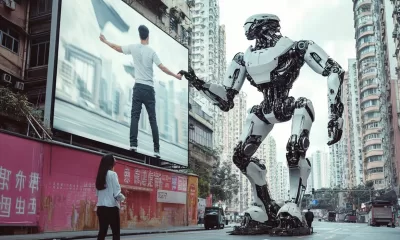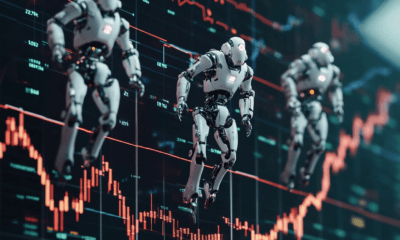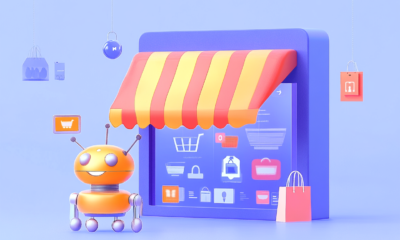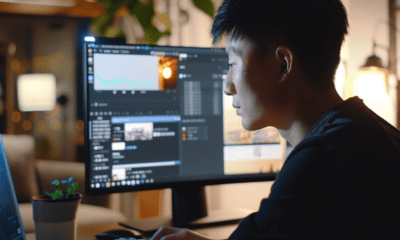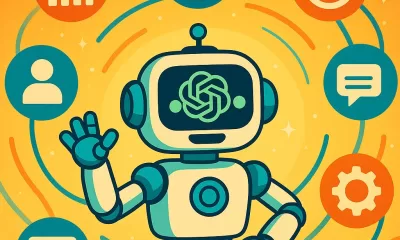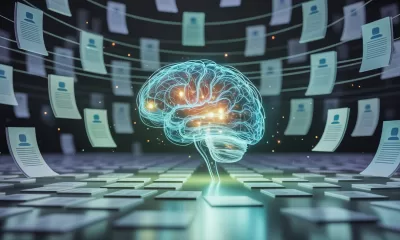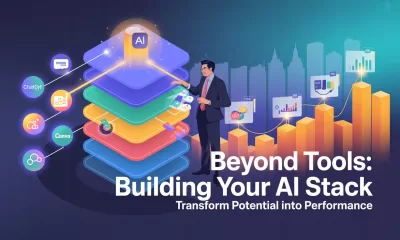News
AI Chatbots Struggle with Real-Time Political News: Are They Ready to Monitor Elections?
AI chatbots face challenges in keeping up with breaking political news, highlighting the need for caution and reliance on trusted sources.
Published
10 months agoon
By
AIinAsia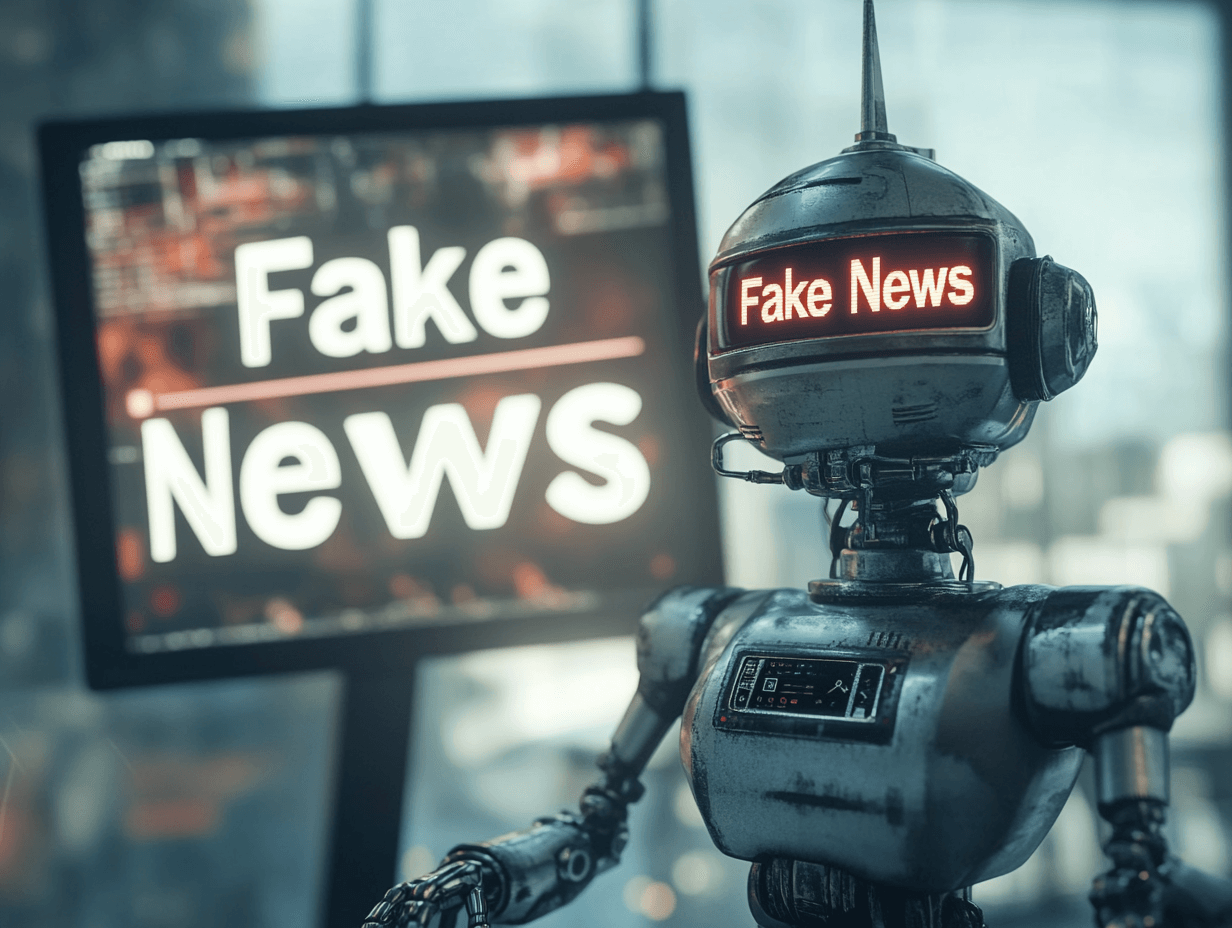
TL;DR:
- AI chatbots struggled to keep up with breaking political news, such as Biden’s withdrawal and the Trump rally shooting.
- Companies like Microsoft and Google are cautious about AI’s role in elections, redirecting users to authoritative sources.
- Experts advise relying on mainstream media for accurate and up-to-date political information.
In the dynamic world of politics, every second counts, and breaking news can change the landscape in an instant. But how well are AI chatbots, touted as the future of information access, handling these real-time updates? Recent events, from President Biden’s withdrawal announcement to the Trump rally shooting, have put AI chatbots to the test, revealing significant challenges in their ability to keep up with consequential news.
AI Chatbots Lag Behind Breaking News
In the hour following President Biden’s announcement that he would withdraw from the 2024 campaign, most popular AI chatbots seemed unaware of the news. When asked directly if Biden had dropped out, almost all chatbots either said no or declined to give an answer. Even when asked who was running for president, they still listed Biden’s name. This lag in real-time updates highlights a critical limitation of AI chatbots in the fast-paced world of politics.
The Challenge of Real-Time Updates
Over the past week, we tested AI chatbots’ ability to handle breaking political stories. The results were disappointing. Most chatbots did not have current information, gave incorrect answers, or declined to answer, directing users to check news sources instead. This trend is particularly concerning with the presidential election approaching and a steady stream of political news breaking.
AI Chatbots and the 2024 Election
With just months left until the presidential election, AI chatbots are distancing themselves from politics and breaking news. Companies that make chatbots don’t appear ready for their AI to play a larger role in how people follow this election. This cautious approach is evident in how chatbots handle sensitive political topics.
Case Studies: Trump Rally Shooting and Biden’s COVID Diagnosis
Hours after the July 13 shooting at former president Donald Trump’s rally in Butler, Pa., some popular AI bots were confused about what had happened. ChatGPT labeled rumors of an assassination attempt as misinformation, while Meta AI claimed it didn’t have recent or credible information about the incident.
Similarly, chatbots struggled immediately after Trump named J.D. Vance as his running mate and when President Biden tested positive for the coronavirus. These examples underscore the difficulty AI chatbots face in providing accurate and timely information during rapidly evolving events.
The Importance of Sourcing and Citations
Chatbots are designed to give conversational answers and keep people engaged. However, names and links to sources for answers range from nonexistent to hidden. Even when AI includes a source, it adds it after the fact, according to Jevin West, a professor and co-founder of the Center for an Informed Public at the University of Washington.
West emphasized the need for the public to rely on mainstream media for accurate and up-to-date information. “The public needs to know we’re in a stage still where most of the citations and sourcing are post-hoc and going to lead to problems,” he said.
How Different Chatbots Handle Breaking News
Microsoft’s Copilot
Microsoft’s Copilot tended to have the correct information fastest in our tests, with heavy linking to original sources. However, the company is being cautious about politics and putting in guardrails ahead of the election.
“Out of an abundance of caution, we’re redirecting election-related prompts in Copilot to Bing search to help ensure users are getting information from the most authoritative sources,” said Microsoft spokesperson Donny Turnbaugh.
Google’s Gemini
Google’s AI Overview answers don’t typically show up for questions about breaking news. Instead, the site skips straight to showing its usual Google News links. However, Gemini, its separate AI chatbot, was sometimes able to answer news questions in tests. Gemini does not yet include links to its sources.
The company announced late last year that it would restrict some election-related queries on its AI tools. If you ask Gemini about politics, it says, “I can’t help with responses on elections and political figures right now” and links users to Google search. Google said it’s working on improving the experience as it gets more feedback.
Perplexity
Perplexity is another AI chatbot with access to real-time information, and it has come under fire for how it pulls from real articles and reporting. It is not blocking or redirecting political inquiries, but the company says it’s prioritizing authoritative sources such as government websites for election-related questions.
In our tests, when asked “Was Trump shot?” hours after the July 13 rally, Perplexity said that “there are no reports of Trump or anyone else being shot or injured.” It did include other accurate information about the incident with links to sources. By later in the day, it was answering correctly.
Asked on Sunday who is running for president, Perplexity listed Biden. Perplexity includes disclaimers in some answers that are incorrect, such as when it said on Wednesday that Biden did not have covid: “It’s important to note that the current health of public figures can change rapidly.”
“For breaking news, we recommend reading trusted news outlets. They are best-equipped to offer real-time updates on timely topics since they are actively reporting on the news,” said Sara Platnick, spokesperson at Perplexity. She noted that less than 3 percent of Perplexity’s searches are related to current events.
Meta AI
Meta AI — which appears in Messenger, Facebook, Instagram, and WhatsApp — seemed to have the most stringent limits on political news. Asked about Trump’s running mate, it generated an accurate answer that named Vance, but then quickly deleted and replaced it with a message that said “Thanks for asking” and linked to voting information. The company has been open about distancing itself from news on its platforms.
Asked about Meta AI’s approach to breaking news, the company directed us to blog posts announcing the tool that mention only non-news uses. However, if you ask Meta AI what you should use it for, it includes asking for news updates.
The Future of AI in Politics
As AI chatbots continue to evolve, their role in politics and breaking news remains uncertain. While they offer the promise of instant information, their current limitations highlight the need for caution and the importance of relying on trusted sources for critical updates.
Comment and Share
What do you think about the future of AI chatbots in politics? Will they ever be able to keep up with breaking news? Share your thoughts and experiences in the comments below. Don’t forget to subscribe for updates on AI and AGI developments.
You may also like:
- To learn more about AI and politics, tap here.
Author
Discover more from AIinASIA
Subscribe to get the latest posts sent to your email.
You may like
-


Adrian’s Arena: When Will AI Replace the CMO?
-


Adrian’s Arena: The AI-Driven Playbook for Winning Over APAC Consumers
-


AI Showdown: ChatGPT Doubles Users, Meta Hits 400 Million, and Google Reboots Strategy
-


Revolutionise Your Sales: How AI-Powered Chatbots Can Drive Revenue
-


When Chatbots Become Companions: A Surprising Twist in AI Relationships
-


How to bypass ChatGPT restrictions
News
If AI Kills the Open Web, What’s Next?
Exploring how AI is transforming the open web, the rise of agentic AI, and emerging monetisation models like microtransactions and stablecoins.
Published
4 days agoon
May 28, 2025By
AIinAsia
The web is shifting from human-readable pages to machine-mediated experiences with AI impacting the future of the open web. What comes next may be less open—but potentially more useful.
TL;DR — What You Need To Know
- AI is reshaping web navigation: Google’s AI Overviews and similar tools provide direct answers, reducing the need to visit individual websites.
- Agentic AI is on the rise: Autonomous AI agents are beginning to perform tasks like browsing, shopping, and content creation on behalf of users.
- Monetisation models are evolving: Traditional ad-based revenue is declining, with microtransactions and stablecoins emerging as alternative monetisation methods.
- The open web faces challenges: The shift towards AI-driven interactions threatens the traditional open web model, raising concerns about content diversity and accessibility.
The Rise of Agentic AI
The traditional web, characterised by human users navigating through hyperlinks and search results, is undergoing a transformation. AI-driven tools like Google’s AI Overviews now provide synthesised answers directly on the search page, reducing the need for users to click through to individual websites.
This shift is further amplified by the emergence of agentic AI—autonomous agents capable of performing tasks such as browsing, shopping, and content creation without direct human intervention. For instance, Opera’s new AI browser, Opera Neon, can automate internet tasks using contextual awareness and AI agents.
These developments suggest a future where AI agents act as intermediaries between users and the web, fundamentally altering how information is accessed and consumed.
Monetisation in the AI Era
The traditional ad-based revenue model that supported much of the open web is under threat. As AI tools provide direct answers, traffic to individual websites declines, impacting advertising revenues.
In response, new monetisation strategies are emerging. Microtransactions facilitated by stablecoins offer a way for users to pay small amounts for content or services, enabling creators to earn revenue directly from consumers. Platforms like AiTube are integrating blockchain-based payments, allowing creators to receive earnings through stablecoins across multiple protocols.
This model not only provides a potential revenue stream for content creators but also aligns with the agentic web’s emphasis on seamless, automated interactions.
The Future of the Open Web
The open web, once a bastion of free and diverse information, is facing significant challenges. The rise of AI-driven tools and platforms threatens to centralise information access, potentially reducing the diversity of content and perspectives available to users.
However, efforts are underway to preserve the open web’s principles. Initiatives like Microsoft’s NLWeb aim to create open standards that allow AI agents to access and interact with web content in a way that maintains openness and interoperability.
The future of the web may depend on balancing the efficiency and convenience of AI-driven tools with the need to maintain a diverse and accessible information ecosystem.
What Do YOU Think?
As AI impacts the future of the open web, we must consider how to preserve the values of openness, diversity, and accessibility. How can we ensure that the web remains a space for all voices, even as AI agents become the primary means of navigation and interaction?
You may also like:
- Top 10 AI Trends Transforming Asia by 2025
- Build Your Own Agentic AI — No Coding Required
- Is AI Really Paying Off? CFOs Say ‘Not Yet’
- Or tap here to explore the free version of Claude AI.
Author
Discover more from AIinASIA
Subscribe to get the latest posts sent to your email.
News
GPT-5 Is Less About Revolution, More About Refinement
This article explores OpenAI’s development of GPT-5, focusing on improving user experience by unifying AI tools and reducing the need for manual model switching. It includes insights from VP of Research Jerry Tworek on token growth, benchmarks, and the evolving role of humans in the AI era.
Published
1 week agoon
May 22, 2025By
AIinAsia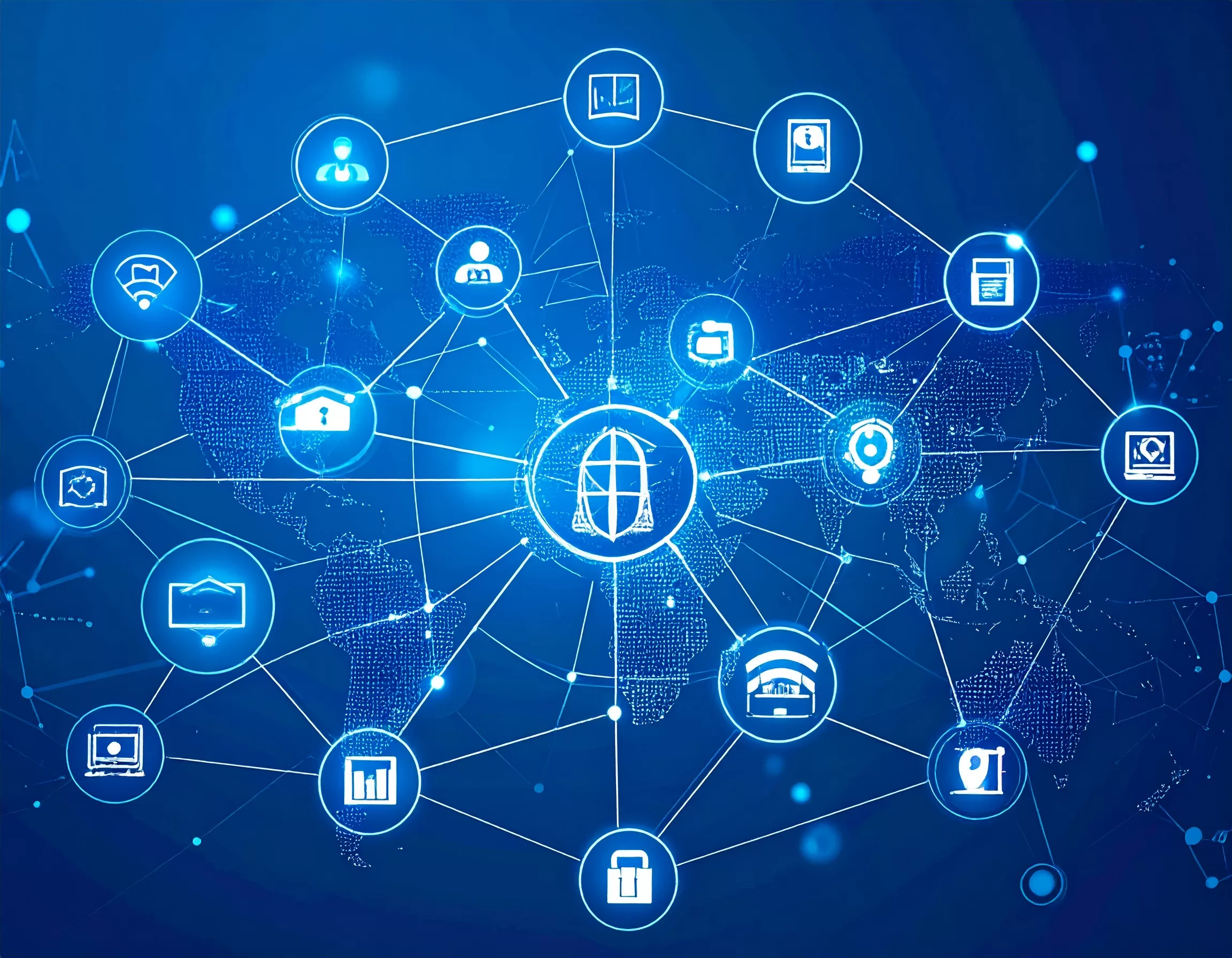
OpenAI’s next model isn’t chasing headlines—it’s building a smoother, smarter user experience with fewer interruptions the launch of GPT-5 unified tools.
TL;DR — What You Need To Know
- GPT-5 aims to unify OpenAI’s tools, reducing the need for switching between models
- The Operator screen agent is due for an upgrade, with a push towards becoming a desktop-level assistant
- Token usage continues to rise, suggesting growing AI utility and infrastructure demand
- Benchmarks are losing their relevance, with real-world use cases taking centre stage
- OpenAI believes AI won’t replace humans but may reshape human labour roles
A more cohesive AI experience, not a leap forward
While GPT-4 dazzled with its capabilities, GPT-5 appears to be a quieter force, according to OpenAI’s VP of Research, Jerry Tworek. Speaking during a recent Reddit Q&A with the Codex team, Tworek described the new model as a unifier—not a disruptor.
“We just want to make everything our models can currently do better and with less model switching,” Tworek said. That means streamlining the experience so users aren’t constantly toggling between tools like Codex, Operator, Deep Research and memory functions.
For OpenAI, the future lies in integration over invention. Instead of introducing radically new features, GPT-5 focuses on making the existing stack work together more fluidly. This approach marks a clear departure from the hype-heavy rollouts often associated with new model versions.
Operator: from browser control to desktop companion
One of the most interesting pieces in this puzzle is Operator, OpenAI’s still-experimental screen agent. Currently capable of basic browser navigation, it’s more novelty than necessity. But that may soon change.
An update to Operator is expected “soon,” with Tworek hinting it could evolve into a “very useful tool.” The goal? A kind of AI assistant that handles your screen like a power user, automating online tasks without constantly needing user prompts.
The update is part of a broader push to make AI tools feel like one system, rather than a toolkit you have to learn to assemble. That shift could make screen agents like Operator truly indispensable—especially in Asia, where mobile-first behaviour and app fragmentation often define the user journey.
Integration efforts hit reality checks
Originally, OpenAI promised that GPT-5 would merge the GPT and “o” model series into a single omnipotent system. But as with many grand plans in AI, the reality was less elegant.
In April, CEO Sam Altman admitted the challenge: full integration proved more complex than expected. Instead, the company released o3 and o4-mini as standalone models, tailored for reasoning.
Tworek confirmed that the vision of reduced model switching is still alive—but not at the cost of model performance. Users will still see multiple models under the hood; they just might not have to choose between them manually.
Tokens and the long road ahead
If you think the token boom is a temporary blip, think again. Tworek addressed a user scenario where AI assistants might one day process 100 tokens per second continuously, reading sensors, analysing messages, and more.
That, he says, is entirely plausible. “Even if models stopped improving,” Tworek noted, “they could still deliver a lot of value just by scaling up.”
This perspective reflects a strategic bet on infrastructure. OpenAI isn’t just building smarter models; it’s betting on broader usage. Token usage becomes a proxy for economic value—and infrastructure expansion the necessary backbone.
Goodbye benchmarks, hello real work
When asked to compare GPT with rivals like Claude or Gemini, Tworek took a deliberately contrarian stance. Benchmarks, he suggested, are increasingly irrelevant.
“They don’t reflect how people actually use these systems,” he explained, noting that many scores are skewed by targeted fine-tuning.
Instead, OpenAI is doubling down on real-world tasks as the truest test of model performance. The company’s ambition? To eliminate model choice altogether. “Our goal is to resolve this decision paralysis by making the best one.”
The human at the helm
Despite AI’s growing power, Tworek offered a thoughtful reminder: some jobs will always need humans. While roles will evolve, the need for oversight won’t go away.
“In my view, there will always be work only for humans to do,” he said. The “last job,” he suggested, might be supervising the machines themselves—a vision less dystopian, more quietly optimistic.
For Asia’s fast-modernising economies, that might be a signal to double down on education, critical thinking, and human-centred design. The jobs of tomorrow may be less about doing, and more about directing.
You May Also Like:
- ChatGPT-5 Is Coming in 2024: Sam Altman
- Revolutionise Your Designs with Canva’s AI-Powered Magic Tools
- Revolutionising Critical Infrastructure: How AI is Becoming More Reliable and Transparent
- Or tap here to try the free version of ChatGPT.
Author
Discover more from AIinASIA
Subscribe to get the latest posts sent to your email.
Business
Apple’s China AI pivot puts Washington on edge
Apple’s partnership with Alibaba to deliver AI services in China has sparked concern among U.S. lawmakers and security experts, highlighting growing tensions in global technology markets.
Published
2 weeks agoon
May 21, 2025By
AIinAsia
As Apple courts Alibaba for its iPhone AI partnership in China, U.S. lawmakers see more than just a tech deal taking shape.
TL;DR — What You Need To Know
- Apple has reportedly selected Alibaba’s Qwen AI model to power its iPhone features in China
- U.S. lawmakers and security officials are alarmed over data access and strategic implications
- The deal has not been officially confirmed by Apple, but Alibaba’s chairman has acknowledged it
- China remains a critical market for Apple amid declining iPhone sales
- The partnership highlights the growing difficulty of operating across rival tech spheres
Apple Intelligence meets the Great Firewall
Apple’s strategic pivot to partner with Chinese tech giant Alibaba for delivering AI services in China has triggered intense scrutiny in Washington. The collaboration, necessitated by China’s blocking of OpenAI services, raises profound questions about data security, technological sovereignty, and the intensifying tech rivalry between the United States and China. As Apple navigates declining iPhone sales in the crucial Chinese market, this partnership underscores the increasing difficulty for multinational tech companies to operate seamlessly across divergent technological and regulatory environments.
Apple Intelligence Meets Chinese Regulations
When Apple unveiled its ambitious “Apple Intelligence” system in June, it marked the company’s most significant push into AI-enhanced services. For Western markets, Apple seamlessly integrated OpenAI’s ChatGPT as a cornerstone partner for English-language capabilities. However, this implementation strategy hit an immediate roadblock in China, where OpenAI’s services remain effectively banned under the country’s stringent digital regulations.
Faced with this market-specific challenge, Apple initiated discussions with several Chinese AI leaders to identify a compliant local partner capable of delivering comparable functionality to Chinese consumers. The shortlist reportedly included major players in China’s burgeoning AI sector:
- Baidu, known for its Ernie Bot AI system
- DeepSeek, an emerging player in foundation models
- Tencent, the social media and gaming powerhouse
- Alibaba, whose open-source Qwen model has gained significant attention
While Apple has maintained its characteristic silence regarding partnership details, recent developments strongly suggest that Alibaba’s Qwen model has emerged as the chosen solution. The arrangement was seemingly confirmed when Alibaba’s chairman made an unplanned reference to the collaboration during a public appearance.
“Apple’s decision to implement a separate AI system for the Chinese market reflects the growing reality of technological bifurcation between East and West. What we’re witnessing is the practical manifestation of competing digital sovereignty models.”
Washington’s Mounting Concerns
The revelation of Apple’s China-specific AI strategy has elicited swift and pronounced reactions from U.S. policymakers. Members of the House Select Committee on China have raised alarms about the potential implications, with some reports indicating that White House officials have directly engaged with Apple executives on the matter.
Representative Raja Krishnamoorthi of the House Intelligence Committee didn’t mince words, describing the development as “extremely disturbing.” His reaction encapsulates broader concerns about American technological advantages potentially benefiting Chinese competitors through such partnerships.
Greg Allen, Director of the Wadhwani A.I. Centre at CSIS, framed the situation in competitive terms:
“The United States is in an AI race with China, and we just don’t want American companies helping Chinese companies run faster.”
The concerns expressed by Washington officials and security experts include:
- Data Sovereignty Issues: Questions about where and how user data from AI interactions would be stored, processed, and potentially accessed
- Model Training Advantages: Concerns that the vast user interactions from Apple devices could help improve Alibaba’s foundational AI models
- National Security Implications: Worries about whether sensitive information could inadvertently flow through Chinese servers
- Regulatory Compliance: Questions about how Apple will navigate China’s content restrictions and censorship requirements
In response to these growing concerns, U.S. agencies are reportedly discussing whether to place Alibaba and other Chinese AI companies on a restricted entity list. Such a designation would formally limit collaboration between American and Chinese AI firms, potentially derailing arrangements like Apple’s reported partnership.
Commercial Necessities vs. Strategic Considerations
Apple’s motivation for pursuing a China-specific AI solution is straightforward from a business perspective. China remains one of the company’s largest and most important markets, despite recent challenges. Earlier this spring, iPhone sales in China declined by 24% year over year, highlighting the company’s vulnerability in this critical market.
Without a viable AI strategy for Chinese users, Apple risks further erosion of its market position at precisely the moment when AI features are becoming central to consumer technology choices. Chinese competitors like Huawei have already launched their own AI-enhanced smartphones, increasing pressure on Apple to respond.
“Apple faces an almost impossible balancing act. They can’t afford to offer Chinese consumers a second-class experience by omitting AI features, but implementing them through a Chinese partner creates significant political exposure in the U.S.
The situation is further complicated by China’s own regulatory environment, which requires foreign technology companies to comply with data localisation rules and content restrictions. These requirements effectively necessitate some form of local partnership for AI services.
A Blueprint for the Decoupled Future?
Whether Apple’s partnership with Alibaba proceeds as reported or undergoes modifications in response to political pressure, the episode provides a revealing glimpse into the fragmenting global technology landscape.
As digital ecosystems increasingly align with geopolitical boundaries, multinational technology firms face increasingly complex strategic decisions:
- Regionalised Technology Stacks: Companies may need to develop and maintain separate technological implementations for different markets
- Partnership Dilemmas: Collaborations beneficial in one market may create political liabilities in others
- Regulatory Navigation: Operating across divergent regulatory environments requires sophisticated compliance strategies
- Resource Allocation: Developing market-specific solutions increases costs and complexity
What we’re seeing with Apple and Alibaba may become the norm rather than the exception. The era of frictionless global technology markets is giving way to one where regional boundaries increasingly define technological ecosystems.
Looking Forward
For now, Apple Intelligence has no confirmed launch date for the Chinese market. However, with new iPhone models traditionally released in autumn, Apple faces mounting time pressure to finalise its AI strategy.
The company’s eventual approach could signal broader trends in how global technology firms navigate an increasingly bifurcated digital landscape. Will companies maintain unified global platforms with minimal adaptations, or will we see the emergence of fundamentally different technological experiences across major markets?
As this situation evolves, it highlights a critical reality for the technology sector: in an era of intensifying great power competition, even seemingly routine business decisions can quickly acquire strategic significance.
You May Also Like:
- Alibaba’s AI Ambitions: Fueling Cloud Growth and Expanding in Asia
- Apple Unleashes AI Revolution with Apple Intelligence: A Game Changer in Asia’s Tech Landscape
- Apple and Meta Explore AI Partnership
Author
Discover more from AIinASIA
Subscribe to get the latest posts sent to your email.

Upgrade Your ChatGPT Game With These 5 Prompts Tips

If AI Kills the Open Web, What’s Next?

Build Your Own Custom GPT in Under 30 Minutes – Step-by-Step Beginner’s Guide
Trending
-

 Life3 weeks ago
Life3 weeks ago7 Mind-Blowing New ChatGPT Use Cases in 2025
-

 Learning2 weeks ago
Learning2 weeks agoHow to Use the “Create an Action” Feature in Custom GPTs
-

 Business3 weeks ago
Business3 weeks agoAI Just Killed 8 Jobs… But Created 15 New Ones Paying £100k+
-

 Tools3 weeks ago
Tools3 weeks agoEdit AI Images on the Go with Gemini’s New Update
-

 Learning6 days ago
Learning6 days agoBuild Your Own Custom GPT in Under 30 Minutes – Step-by-Step Beginner’s Guide
-

 Learning2 weeks ago
Learning2 weeks agoHow to Upload Knowledge into Your Custom GPT
-

 Business1 week ago
Business1 week agoAdrian’s Arena: Stop Collecting AI Tools and Start Building a Stack
-

 Life2 weeks ago
Life2 weeks agoAdrian’s Arena: Will AI Get You Fired? 9 Mistakes That Could Cost You Everything

